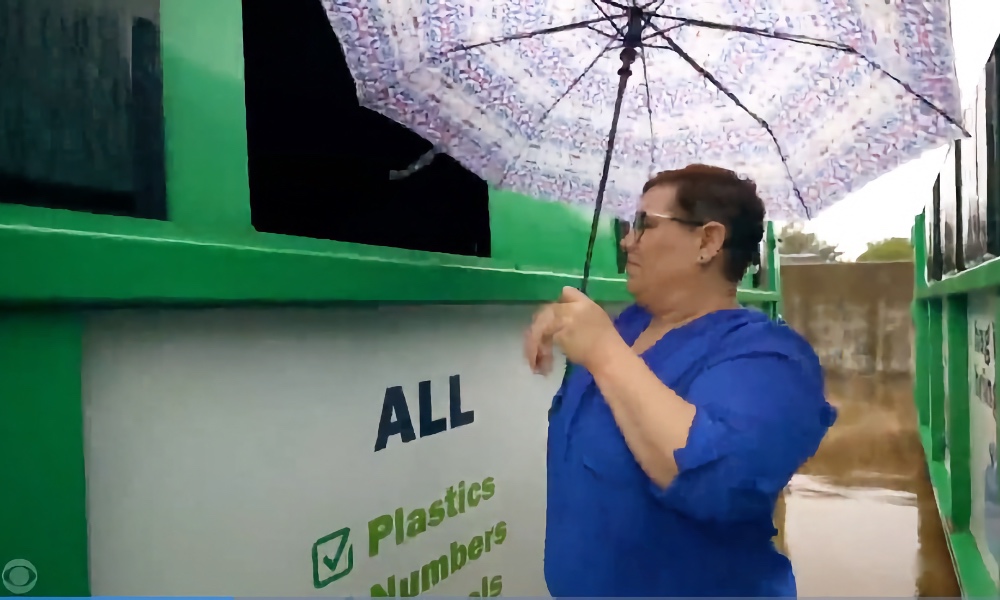AirTags Help Houston Woman Expose City’s Plastic Recycling Failures
 Credit: CBS News
Credit: CBS News
Toggle Dark Mode
A Houston woman had doubts about the Texas city’s “all plastic accepted” recycling program, so she decided to use a set of Apple AirTags to find out exactly where Houston residents’ plastic waste ended up.
Brandy Deason, who regularly recycles her packaging and other waste, began to question Houston’s plastic recycling program, which claimed it could accept types of plastic that are normally not considered recyclable.
Deason decided to dig into how Houston handled her recycling, so she purchased multiple AirTags and placed a tracker inside each of her plastic recycling bags. As she tracked the AirTags, she watched as nearly all of the bags with trackers eventually ended up on the premises of Wright Waste Management, located in nearby Harris County.
So, trash bags ended up at a waste management firm. What’s the big deal? Well, Wright Waste Management does not have official approval to store plastic waste and has failed three fire inspections in the past.
In his report, CBS News correspondent Ben Tracy called Deason “the James Bond of plastic recycling” for her efforts. While Wright Waste Management did not allow news personnel to enter and inspect its premises, aerial footage revealed that the Houston-based waste management facility had several piles of plastic waste, some as tall as ten feet high.
It struck Deason as “kind of strange” that the unrecyclable plastic waste was being stored at the facility, so she contacted Houston’s Director of Solid Waste Management, Mark Wilfalk.
After being shown the drone footage, Wilfalk commented, “It’s not the most desirable-looking site.” He then promised Deason that he’d personally investigate the issues that caused Wright Waste Management to fail the three fire inspections.
Wilfalk later admitted that while the city has collected some 250 tons of plastic since the end of 2022, none of it has yet been recycled.
“We’re gonna stockpile it for now,” he admitted. “We’re gonna see what happens.”
Houston is stockpiling the plastics as it cools its heels waiting for a promised sorting facility to open. When the facility finally begins doing business, the stored plastics will be sorted and treated. Cyclix, the company that owns the sorting facility, claims to have developed a method that can create recyclable pellets out of plastic waste, not just the usually recyclable waste materials.
Cyclix says it requires a massive stockpile of plastics for processing, which is why it’s letting all the trash pile up in WWM’s facility. Unfortunately, according to the company’s operational timeline, the processing plant will not open for another eight to nine months. This means that the company will collect and store even more trash before the recycling facility’s doors open, even as the HRC program expands into additional areas of Houston.
However, it turns out that only a tiny number of the pellets the facility creates can be recycled into new plastic. Unfortunately, most of the pellets will be burned as fuel, increasing carbon emissions.
The US Environmental Protection Agency (EPA) says that converting “solid waste to fuels, fuel ingredients, or energy” is not considered recycling.
Meanwhile, California Attorney General Rob Bonta is investigating Cyclix partner Exxon, accusing it of “a half-century of deception” about recycling.







